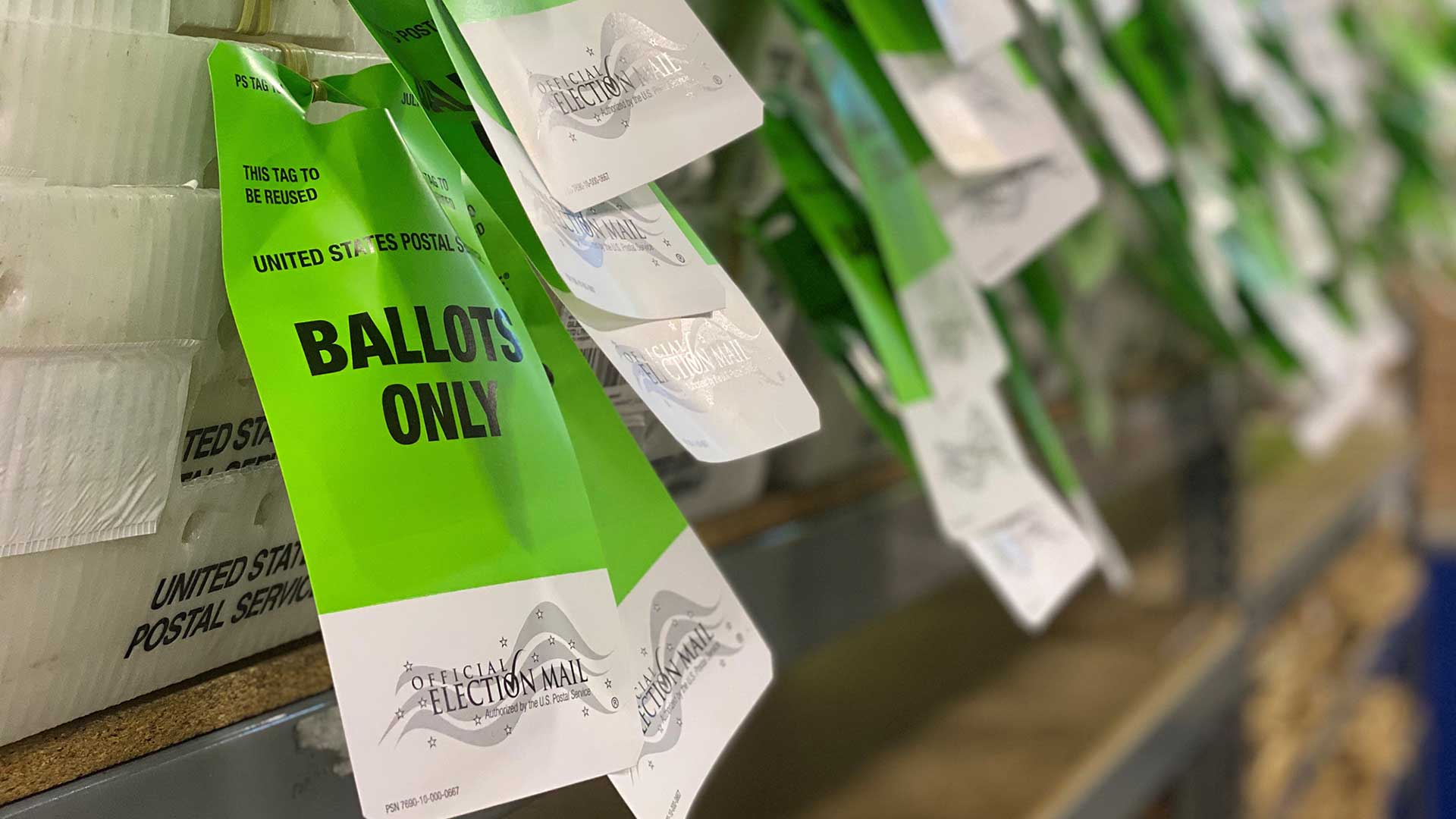 Postal bins with tags for ballots in the 2020 general election.
Postal bins with tags for ballots in the 2020 general election.
Polls closed days ago in Arizona, but counting for the 2022 midterm elections continued Thursday as officials continued to tally votes cast in Maricopa County and across the state in outstanding races for Senate and governor.
Arizona's votes are announced in waves and typically take past Election Day itself to tally. The wait isn't new, although in cycles past, the intervening pause has become a contentious time some candidates have used to cast doubts about an election's integrity.
Here's a rundown on how things are shaking out as Arizona's ongoing vote count continues:
WHAT'S OUTSTANDING?
No winners have been called in all of Arizona's top-of-the-ticket races, including Democratic Sen. Mark Kelly 's reelection battle against Republican Blake Masters, as well as the open governor's race between Katie Hobbs, the Democratic secretary of state, and Republican Kari Lake, a former TV broadcaster.
The Associated Press also hasn't called winners in contests for Arizona's attorney general and the new secretary of state. And no race calls have been issued in some of the state's U.S. House races.
Lake was about a point and a half behind Hobbs, and the Republican candidate for attorney general also trailed narrowly.
Democrats had 5-point margins in the races for U.S. Senate and secretary of state, but with so many ballots outstanding, the contests were too early to call.
WHAT ARE THE RULES OF THE GAME?
Almost all of Arizona's vote happens by mail, and counting all of those ballots can take a while, particularly in a county as large as Maricopa. The state's largest — and fourth-largest in the country — Maricopa is home to a total of 4.5 million residents, and about 2.4 million registered voters.
Early votes in Arizona can be counted as they come in, meaning that officials don't have to wait until polls close on Election Day to start.
WHAT HAPPENED ON ELECTION DAY?
There were some Republican activists in Arizona who advocated that voters intentionally wait until Election Day itself to drop off their ballots.
Some of this push was based on unfounded theories that fraudsters could manipulate voting systems and rig results for Democrats, once they had seen how many GOP votes had been returned early.
Experts had also warned that such a last-minute crush of ballots could end up creating delays that can ultimately be used by a bad actor to undermine confidence in the election.
There were some hang-ups this year. About a quarter of voting centers in Maricopa County, Arizona's most populous, had a printing problem Tuesday, in which marks weren't showing up correctly when voters showed up to print out their ballots.
The issue ultimately got rectified, and election officials assured voters that every ballot would be counted.
Most Arizona counties don't count ballots in-house, with officials instead bringing them to a central facility.
Maricopa County officials count drop box ballots at their central facility, which was the scene of protests by hundreds of Trump supporters, some of whom were armed, after his 2020 election loss.
WHY DOES THIS SOUND FAMILIAR?
There was intense scrutiny on Arizona's processes, rules, and counting after the 2020 election, when Joe Biden notched his slimmest margin of victory in the state, becoming the first Democratic presidential hopeful to win Arizona since 1996.
In the weeks after that election, though, there were myriad protests and court challenges to the results.
In 2016, a decision to reduce the number of Maricopa County's polling places during the presidential preference primary resulted in hours-long lines that caused some voters to leave the polls without casting their ballots.
In primary elections two years later, dozens of county polling places weren’t set up and ready to accept voters when polls were supposed to open, resulting in cascading issues throughout the day.
But there was no evidence of widespread fraud.
WHEN DO WE GET NEW NUMBERS?
Officials estimated there were about 320,000 Maricopa County votes left to count after a chunk of 80,000 was posted late Thursday.
Tens of thousands of those were ballots that came in on Election Day itself — votes known in some places as “late earlies,” the counting of which has been known to hold up tabulation.
In all of Arizona, officials said there are nearly 500,000 ballots left to count, with the margin in the governor's race sitting at just under 27,000 votes.
About 17,000 ballots — or about 7% of those cast in person on Election Day — were set aside due to the problem with printers at about a quarter of the county’s vote tabulation centers.
A judge denied a request from Republicans to keep the polls open, saying he didn’t see evidence that people were not allowed to vote, and officials said those votes would be tallied throughout the week.

By submitting your comments, you hereby give AZPM the right to post your comments and potentially use them in any other form of media operated by this institution.